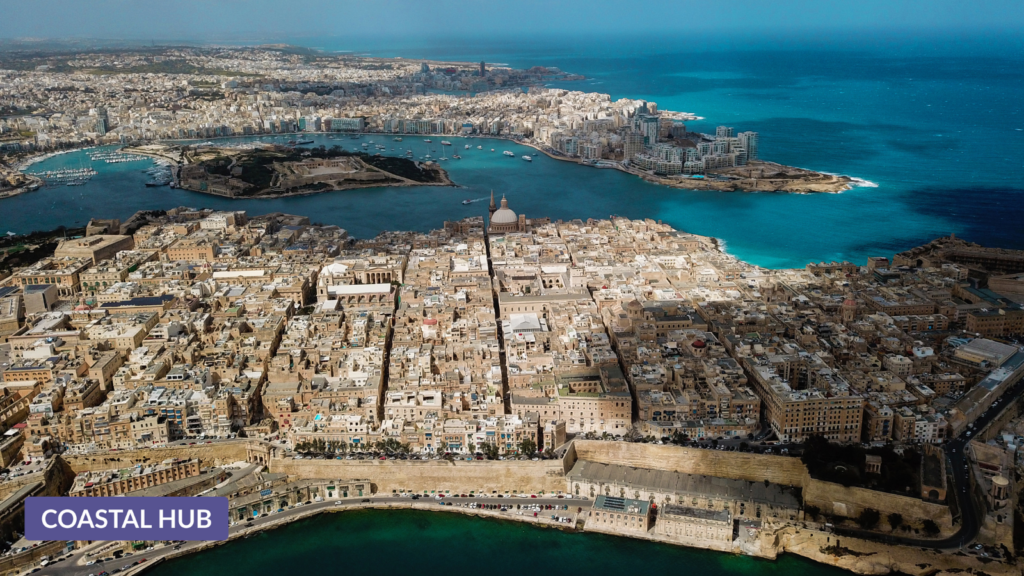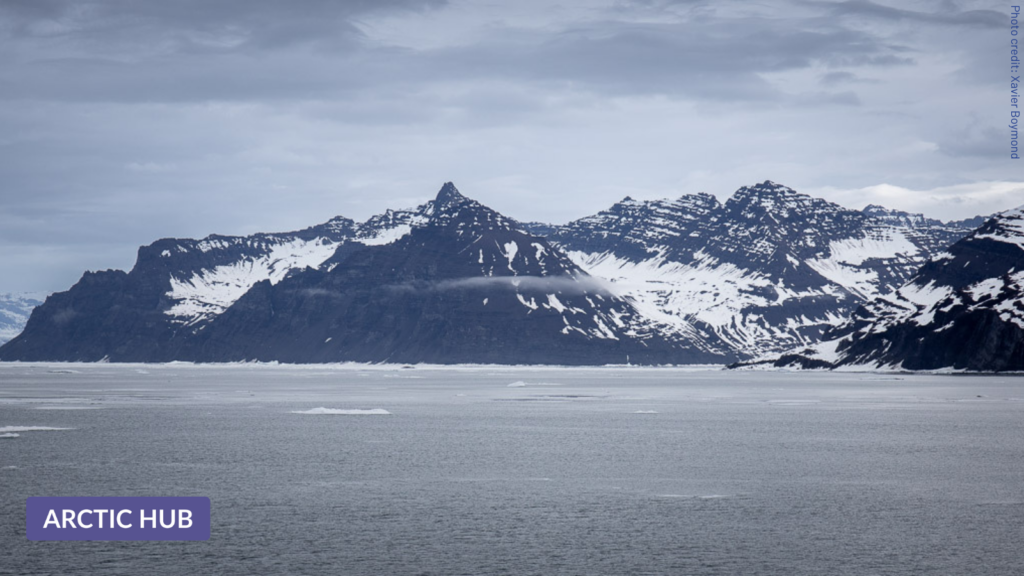The Copernicus Arctic and Coastal Hubs have been launched at the occasion of the EU Space Week on 6-8 November 2023 in Seville, Spain. The two hubs will respectively represent open entry points aggregating Copernicus data on the Arctic Region and European coastal areas. The thematic hubs will help identify new user needs, foster digital uptake and support the EU in the implementation of policies such as the EU Arctic Policy, the Marine Strategy Framework Directive and the Maritime Spatial Planning Directive. The European Commission entrusted Mercator Ocean to design and operate the two hubs within the framework of the Copernicus Contribution Agreement (2021-2028).
The Copernicus Arctic Hub in support of the EU Arctic Policy
The Arctic region is standing out with increasing prominence in the international agenda, as it displays all its fragility in the face of climate change and countries are increasingly coveting the region’s natural resources, seeing it as a source of economic growth from a shipping and tourism perspective. Having warmed nearly four times faster than the rest of the planet since 1979, the region is undergoing radical changes which not only affect local environment and communities but have repercussions on the global ecosystem.
As the Earth Observation component of the EU Space Programme, Copernicus has its eyes set on the Arctic region, monitoring key variables of climate change (i.e. sea ice melting and permafrost thawing) as well as providing data in support of shipping and fishing operations and maritime safety.
Copernicus is highlighted numerous times in the updated EU Arctic Policy (2021) as a key tool to support the implementation of its priorities: addressing the effects of climate change, safeguarding the Arctic environment, supporting sustainable development and fostering international cooperation.
For these reasons, and the success of the Copernicus environmental services achieved so far, the European Commission has expanded the offering of Europe’s Earth Observation Programme by establishing the Copernicus Arctic Hub. The Hub is set to revolutionise how policymakers and researchers access Copernicus data on the Arctic region by centralising Copernicus Marine, Land, Atmosphere, Climate, and Emergency services datasets and use cases in one single platform.
Safeguarding Europe’s coasts: the Copernicus Coastal Hub
Europe has around 68,000 km of coastline, and according to 2011 Eurostat data, around 40% of the EU-27 population lived in coastal regions. In addition to being home to millions of European citizens, these areas play a vital role in the EU’s blue economy as they host maritime renewable energy infrastructure (tidal & wind energy), aquaculture activities (fish farming), coastal and maritime tourism activities as well as trade and transport hotspots.
As extreme weather events become more common with the rise of global temperatures, people, settlements and infrastructure in these regions face an increased risk of widespread flooding by the combination of high tides, storm surges and ocean waves. Man-made pollution and algal blooms also put at risk the livelihood of human communities and the health of coastal ecosystems.
Copernicus has been providing reliable intelligence on Europe’s coastal areas through the Copernicus services. By establishing the Copernicus Coastal Hub, the European Commission aims to provide end-users with a single access point for Copernicus climate, marine, land, emergency and security knowledge and applications focused Europe’s coastal regions.

The Hubs’ contribution to Europe’s Digital transformation and the European Green Deal
By supporting thematic and region-specific policies with cross-cutting datasets and use cases, the Copernicus Arctic and Coastal Hubs contribute more broadly to Europe’s long-term strategies such as the EU Digital Strategy and the European Green Deal. The hubs will foster the digital uptake of Copernicus solutions and assist policymakers across the board, from local to Europe-level, providing scientific data to support crucial decisions related to climate change, strengthening our capacity to work towards a sustainable future.
Mercator Ocean International is organising two high-level events connected to the Copernicus Arctic and Coastal Hubs. On 7 December, a lunch discussion at the European Parliament will explore the crucial role of Copernicus data in implementing the ambitious objectives of the EU Arctic Policy, while the Coastal Hub will take centre stage in a dedicated event and one-week exhibition in the premises of the Committee of the Regions at the end of January 2024.
Additional resources
- Explore the new Copernicus Arctic Hub
- Explore the new Copernicus Coastal Hub
- Register for the upcoming event “Copernicus Data at the service of the EU Arctic Policy”
- Read about the One Planet Polar Summit and the Paris Call for Glaciers and Poles

